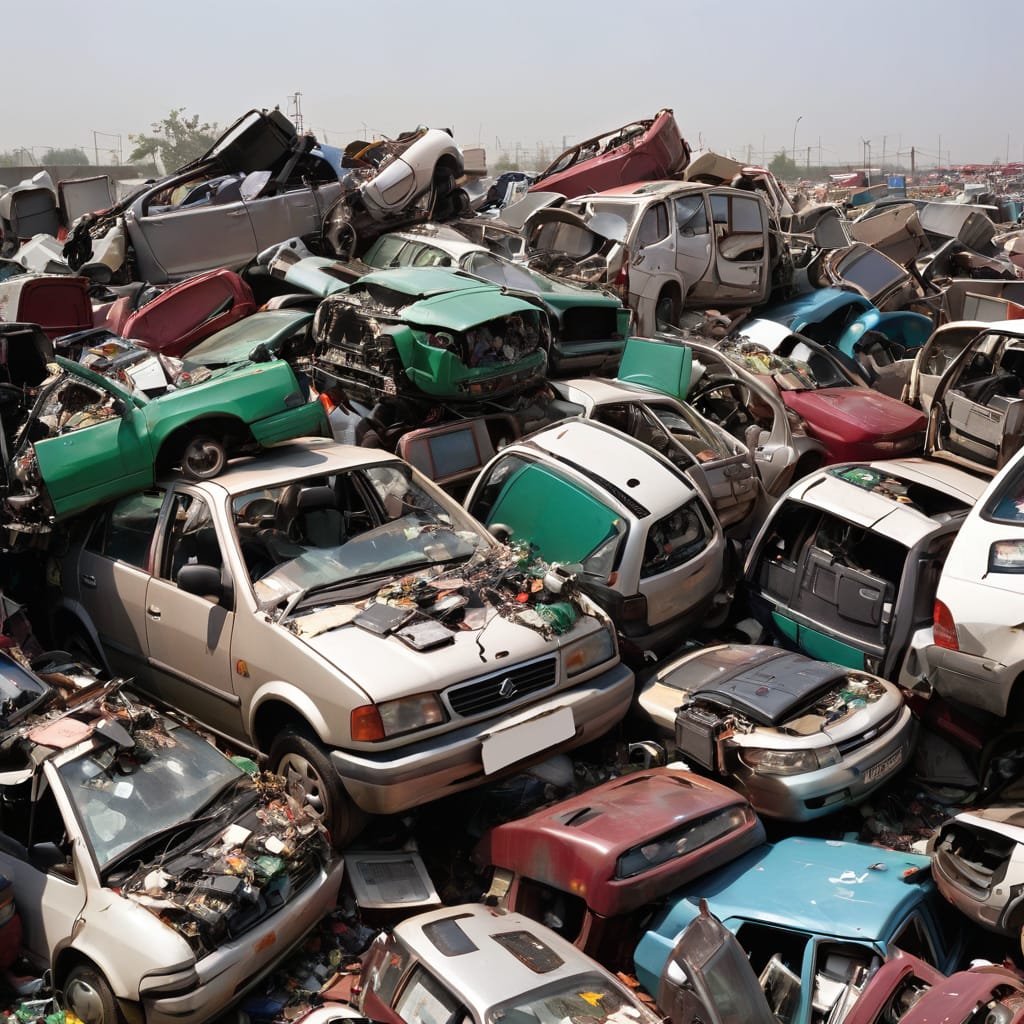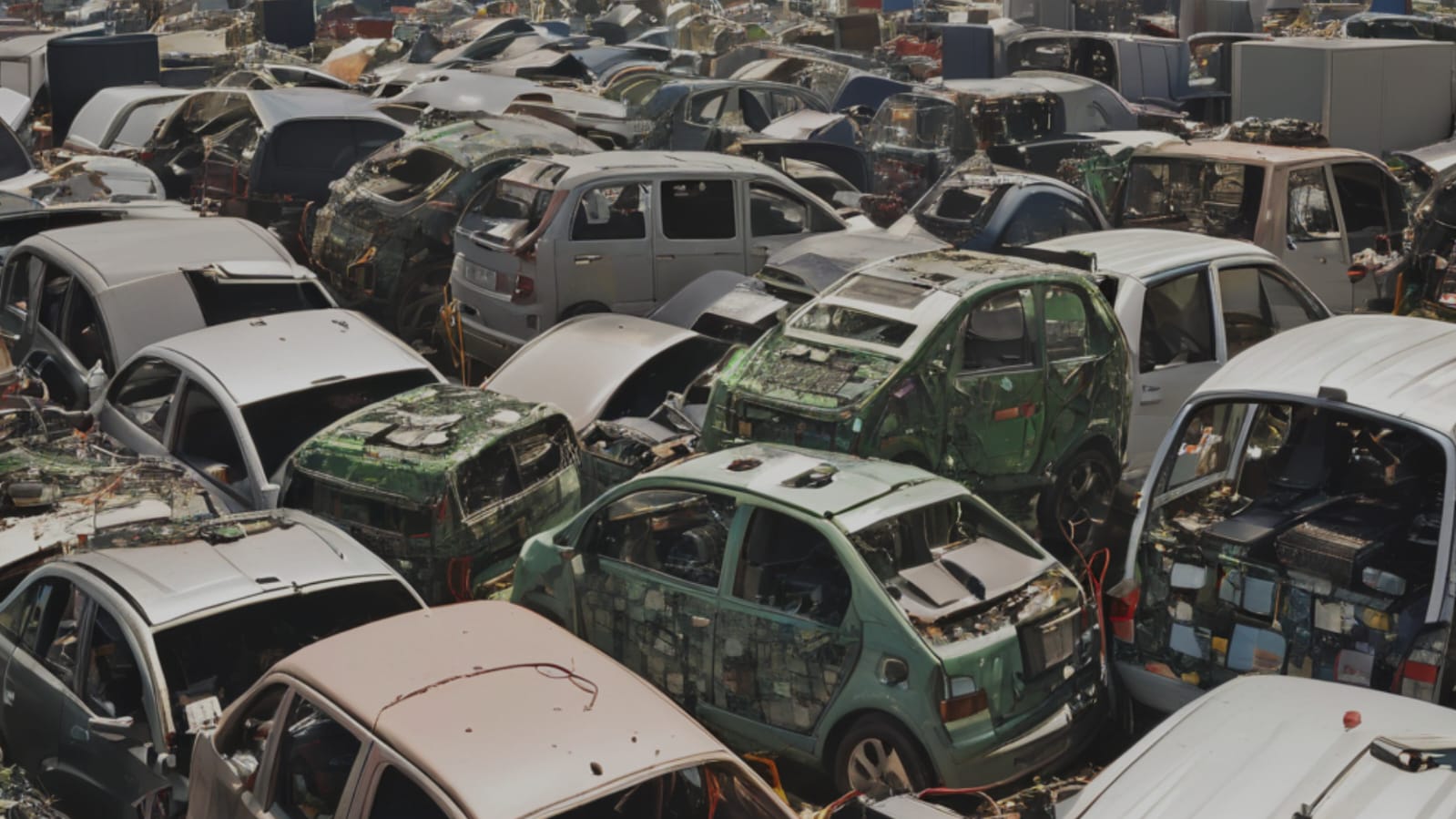E-Wastes
Recent years have seen amazing technological advancements in the automotive sector with cars becoming more advanced and networked than ever. Concern over electronic waste or e-waste produced by the automotive industry is growing along with these advancements. This issue is clarified by a recent Times of India article that highlights the difficulties and consequences associated with vehicle-generated e-waste.
The Growth of Electronic Waste in Cars.
The amount of e-waste produced by the auto industry has increased as a result of vehicles having an increasing number of electronic parts sensors infotainment systems and connectivity features. Electronic components that have been abandoned from cars such as entertainment systems control units dashboard displays sensors and navigation systems are referred to as e-waste. Ensuring sustainability and reducing environmental impact require appropriate management and disposal of these components.
Health and Environmental Issues.
There are serious health and environmental risks associated with improper handling of e-waste. Hazardous substances such as lead mercury cadmium and brominated flame retardants are present in electronic components and if improperly disposed of can seep into soil and water sources. These harmful substances can pollute water supplies destroy ecosystems and endanger the health of both people and animals when they are exposed to them.
Waste Management Practices and Regulatory Frameworks.
Governments and regulatory agencies have put strict rules and waste management techniques into place to address the problems that e-waste presents. To reduce the negative effects on the environment and encourage sustainable practices the E-Waste Management Rules 2016 in India set forth guidelines for the collection sorting recycling and disposal of e-waste. Compliance with these regulations is mandatory for automakers and other automotive industry stakeholders.
Initiatives related to the circular economy and recycling.
In order to address the issues surrounding e-waste the idea of a circular economy has gained popularity. Recovering valuable materials from e-waste like metals plastics and rare earth elements for use in manufacturing processes is a critical function of recycling facilities and initiatives. Automobile manufacturers are investigating environmentally friendly methods such as creating cars with simpler disassembly instructions and encouraging the recycling and reuse of electronic parts.

Innovation and Cooperation in Waste Reduction.
Effective e-waste management requires stakeholder collaboration. To create cutting-edge solutions for resource recovery waste minimization and environmentally friendly production processes automakers recycling companies governments and tech companies are collaborating. The auto industry is becoming more sustainable through initiatives like product take-back programs reverse logistics and green supply chains.
Knowledge and accountability of the consumer.
When it comes to managing e-waste consumers are also vital. Being mindful and acting responsibly are necessary for the proper disposal of end-of-life electronic components including those from cars. A culture of sustainability and environmental stewardship is promoted by encouraging customers to recycle outdated electronics return used car parts to licensed dealerships and donate to eco-friendly causes. Prognosis for the Future and Ecological Methods.
Environmental responsibility and e-waste management will always be top priorities as the automotive sector innovates. A more sustainable and ecologically conscious auto industry can be achieved by adopting the principles of the circular economy investing in green technologies encouraging product longevity and increasing public awareness of the issues surrounding e-waste.
In conclusion.
In the auto industry e-waste offers prospects as well as challenges for sustainability. Addressing e-waste issues and building a greener future for the automotive industry requires an understanding of the impact of electronic components in cars the implementation of efficient waste management procedures adherence to legal requirements cooperation among stakeholders encouragement of consumer responsibility and an embrace of innovation.



